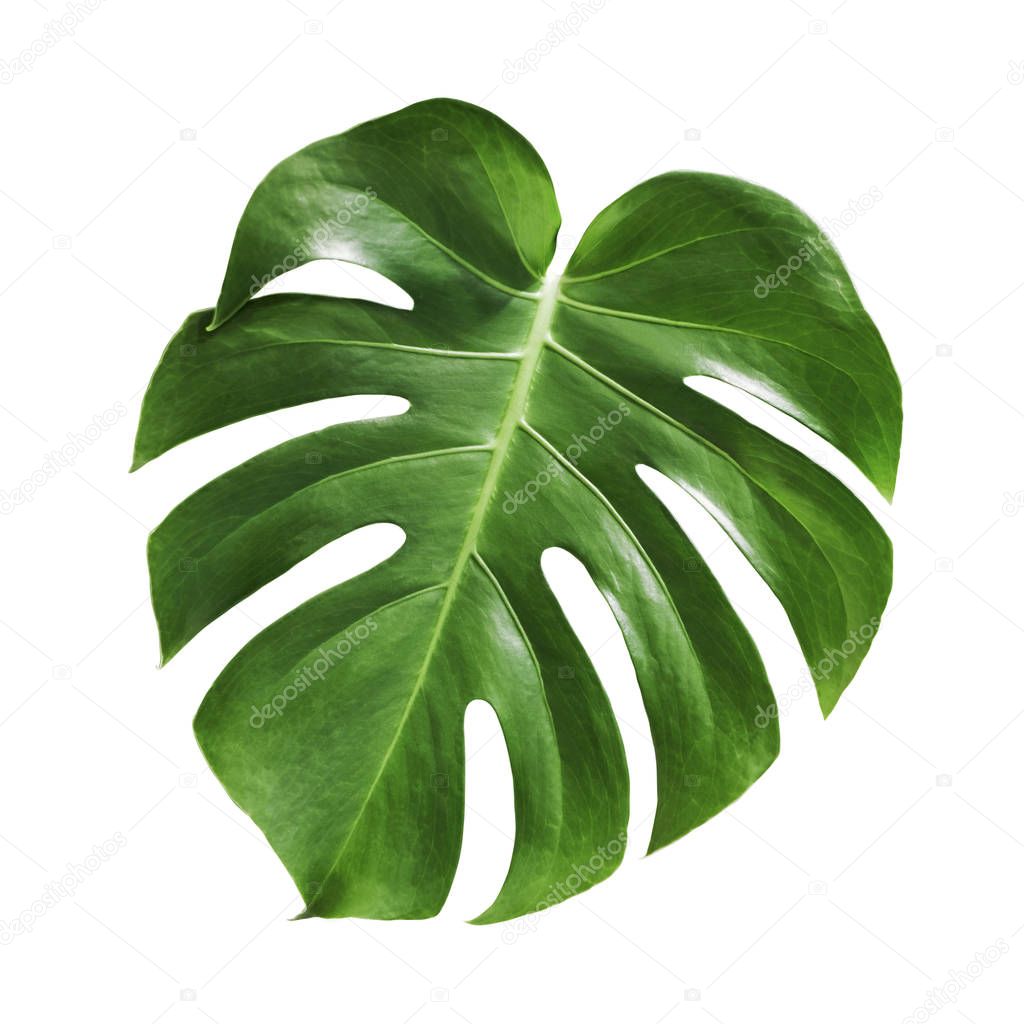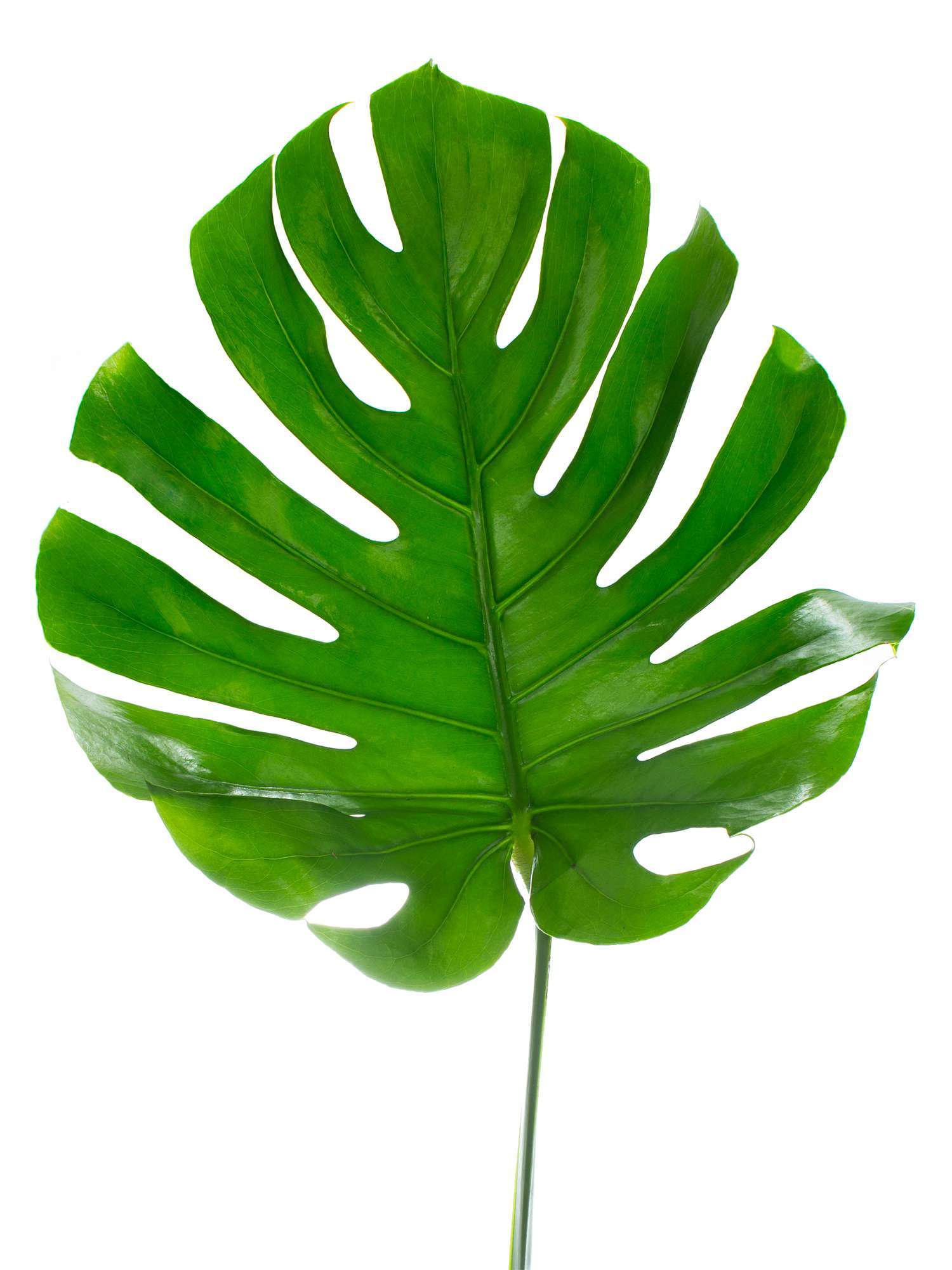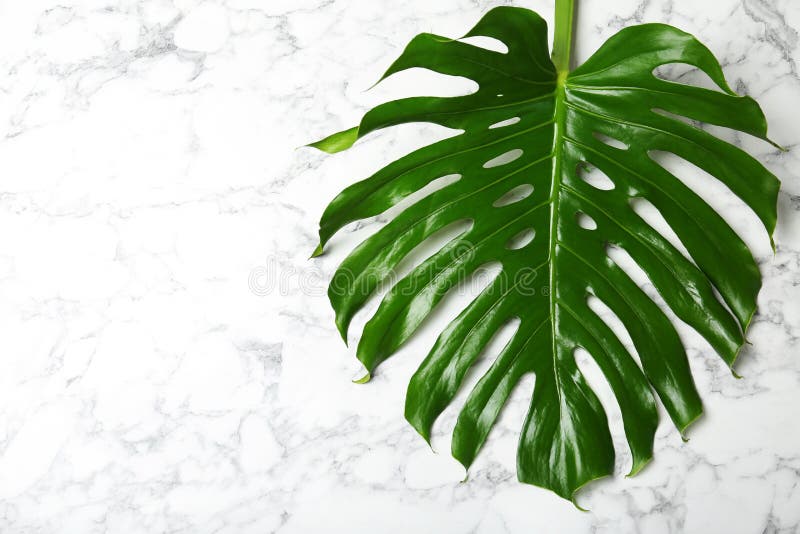
Monstera Deliciosa Blatt stockbild. Bild von horizontal 7720157
Monstera deliciosa, wegen der typischen Form ihres Laubes auch als Fensterblatt oder Fünffingerblatt bezeichnet, gehört zu den beliebtesten Zimmerpflanzen.. Das Fensterblatt ist jedoch nicht nur als Blattschmuckpflanze fürs heimische Wohnzimmer interessant, ihr stilisiertes Blatt findet sich ebenso als Kunst- und Dekoobjekt auf.

Großes Grünes Blatt Der Monstera Anlage Mit Wasser Fällt Stockbild
About. Monsteras are unique, easygoing houseplants whose dramatic leaves are adorned with dramatic hole formations. Monsteras are vining plants and love to trail over the pot or climb along a stake or trellis. They love bright, indirect light, but will be happy under fluorescent lights as well. Monsteras are climbers, so as they grow, they will.

Großes Grünes Blatt Von Monstera Stockbild Bild von frech, pflanzen
Temperature. Try not to go over 60°F when it comes to the temperature. Similar to most houseplants, Monstera deliciosa prefers the 65°F-85°F range. While humid conditions are preferred, normal.

Monstera deliciosa tropical leaf isolated on white background with
Check out our monstera blatt selection for the very best in unique or custom, handmade pieces from our housewarming gifts shops.

Monstera Leaf Png , Png Download Monstera Deliciosa, Transparent Png
Eine gesunde Pflanze lässt sich an einem kräftigen, grünen Blattwerk erkennen. Sind die Blätter gelb, braun oder rollen sich ein, kann das verschiedene Gründe haben. 1. Blätter rollen sich ein. Rollen sich die Blätter der Monstera ein, hat das mit fehlender Feuchtigkeitszufuhr zu tun. Hier die möglichen Ursachen:

Tropisches Blatt Von Monstera Stock Abbildung Illustration von
While Monstera plants can thrive in a variety of temperatures, they prefer temperatures above 60 degrees Fahrenheit. "The warmer and more humid, the better and faster the plants will grow," Hachadourian says. "Temperatures below 60 degrees Fahrenheit will slow the plants down, but temperatures above 85 Fahrenheit can really stress plants.
Der ultimative Monstera deliciosa PflegeGuide Zwei grüne Daumen
Wenn Sie diese Tipps zur Pflege beherzigen, fühlt sich die Monstera rundum wohl. Das Fensterblatt (Monstera deliciosa) sorgt in jedem Zuhause für Jungle-Flair. In diesem Video verrät Ihnen Alicia aus dem MEIN SCHÖNER GARTEN-Team Wissenswertes zur Pflanzung und Pflege der trendigen Zimmerpflanze.

Monsteradeliciosa Blatt Lokalisiert Auf Weißem Hintergrund Stockbild
Dig a hole in your soil—which should be well draining—and put the base of your plant in the ground and cover with more soil. "Once planted in the ground, water well and provide a heavy-duty trellis to allow the vines to grow," Roethling says. When grown outdoors Monstera can grow to be 50 feet tall or taller.

Monstera Blatt. stockfoto. Bild von biologie, organisch 19426578
Plan on watering every 1-2 weeks. Fully saturate the soil with water and make sure it drains from the pot. Empty excess water from the saucer or add water where the pot can drain freely (like a patio, shower, or sink). Let the soil dry between waterings to avoid root rot. Use a soil mix that drains well.

MonsteraBlätter als Schnittblumen halten super lange in der Vase. Sie
Besprühen Sie Ihre Monstera regelmäßig oder stellen eine Schale mit Wasser in die Nähe. Sollte der Befall schon gegeben sein, können Sie anfangs noch versuchen, die Milben mit Wasser abzuspritzen oder gezielt abzuwischen. Ist der Befall allerdings zu weit fortgeschritten, sollten Sie zu anderen Mitteln greifen.

Monstera Blätter groß Blumigo
Gründe für herabhängende Monstera Blätter. Die häufigste Ursache für hängende Monstera Blätter ist die übermäßige Wasserzufuhr, denn durch einen zu nassen Boden können die Wurzeln Schaden nehmen. Die Ursache kann jedoch auch eine andere sein, beispielsweise schlechte Lichtverhältnissen, Schädlingen, falsche Anwendung von Düngemittel.

SEMI OHTOMATIC Photo Leaves, Monstera, Monstera leaf
Fensterblätter. Adans. Die Fensterblätter ( Monstera) sind eine Pflanzen gattung in der Familie der Aronstabgewächse (Araceae). Sie sind in der Neotropis verbreitet. [1] Vom Menschen werden einige Arten als Zier- und Nahrungspflanzen genutzt. In Deutschland zählt Monstera (insbesondere die pflegeleichte Monstera deliciosa) zu den.

Frisches Tropisches Monstera Blatt Stockfoto Bild von hell, grün
Plant the Cutting. Use your finger or a pencil to poke a hole in the center of the growing medium. Plant the cutting so the node is one inch below the soil surface. Coil any aerial roots around the top of the pot and cover with another layer of soil. You can cut back aerial roots instead if they're too large to fit in the pot.

Monstera Deliciosa Blatt stockbild. Bild von horizontal 7720157
The easiest fertilizer to use for your Monstera is a liquid fertilizer, as you can add this to the water when you water your plant. The liquid fertilizer is also great when you want more control over the dosage of fertilizer in the water. Does your plant need a little boost, give it a slightly higher concentration!

Buschgrünes MonsteraBlatt isolierter Transparenzhintergrund. Objekt
The Spruce / Cara Cormack. Sometimes called the Swiss cheese or monkey mask plant, this monstera species comes in as runner-up in terms of popularity and availability after the Monstera deliciosa.. Although it's a bit smaller, it can still reach heights of up to 8 feet when grown indoors and has a climbing, fast-developing growth habit that may benefit from occasional trimming.

Monstera deliciosa Riverside Garden Centre
When cutting a Monstera deliciosa to propagate, slicing a few inches under the node ensures a cutting with all the elements needed to grow into a new plant. Understanding and being able to identify nodes is essential when you are pruning or propagating your Monstera. Below is a brief guide to nodes and what they look like.